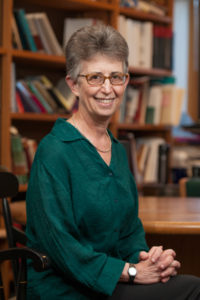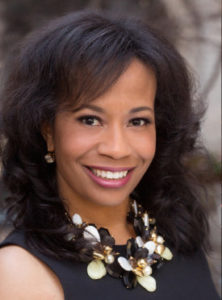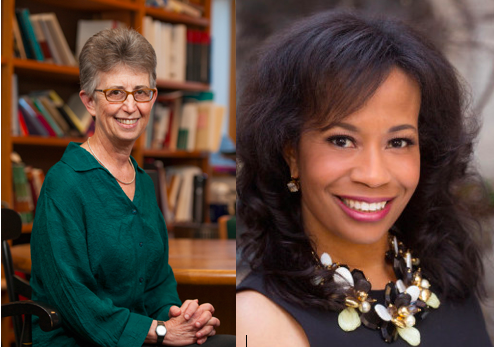In the midst of political discord, a group of Stanford students, faculty and administrators are working together to take actionable steps toward ensuring women’s rights through the newly formed Stanford Women’s Action Network (SWAN).

Estelle Freedman, Edgar E. Robinson Professor in United States History, and Allyson Hobbs, associate professor of history, worked together in January along with other Stanford faculty to bring a group of Stanford students to the Women’s March in Washington D.C. SWAN formed in the aftermath of the event as a way of maintaining activist momentum. Freedman explained that, as historians, she and Hobbs recognized the significance of the march and wanted to offer students who might not have been able to do so otherwise the chance to attend.
“This was one of those historic events that we wanted our students to be able to observe, witness, process, write about, think about,” Freedman said.
Following mobilization for the Women’s March after President Donald Trump’s inauguration, the group had many ideas but not much coordination, Freedman said. Freedman and Hobbs decided to reach out to some of the students who had marched and enlist them in putting together a weekly news digest of both local and national events.

“My goal is to try and enable students to have resources to be engaged citizens,” Freedman said. “To get out of the bubble of Stanford and to look at the larger world and to think, ‘How can I be engaged?’”
SWAN’s first event, a panel discussion titled “Resilient Resistance,” took place on May 8. Students advertised the event, and faculty spoke to an audience of approximately 50 people about topics such as reaching out to the community through the press, taking steps to help the national women’s rights movement and continuing to fight for the goals outlined by the Women’s March.
The group has since grown from the small handful of students who took part in the Women’s March to about 250 people in total.
Callan Showers ’19, one of the founding members of the group, works alongside Hobbs and Freedman to produce and edit the weekly newsletter. She said that the most impactful part of working with SWAN has been seeing the same solidarity she witnessed at the march.
Showers explained that SWAN has given her the opportunity to work with great professors and not only stay politically involved herself, but also help others do so. Showers noted that the act of creating something that is easily digested and relevant to the community has been particularly rewarding.
“Even though I’m not personally affected by the Trump administration every day, I want to be a part of the resistance,” Showers said. “But it can be easy to fall off of that train. SWAN became a built-in way for me to not only disseminate information to the rest of the community and be a resource, but also learn about resources that I didn’t know were out there and partake in them myself.”
Showers feels that SWAN members are connecting to the national movement through their outreach efforts and that SWAN has the potential to make a big change through small, daily actions that are easy to accomplish.
“Seeing the audience grow bigger and bigger has been really special — to feel like what we’re doing has helped people feel involved and informed,” Showers said. “In light of a very traumatic election cycle … activism is becoming more accessible, which I love.”
Hobbs agreed with Showers’ assessment that SWAN works to give people hope and tangible goals in a sometimes disempowering political environment.
“This action is critical,” Hobbs said. “The [presidential] election was devastating for many groups of people. Certainly for women, certainly for minorities, certainly for immigrants, certainly for Muslim-Americans. For many vulnerable groups in our country … SWAN believes in the importance of intersectionality, and for that reason we try to be very inclusive in the types of actions and events we advertise.”
According to Freedman and Hobbs, the group hopes to continue to expand its network. In particular, they want to include more graduate students.
Hobbs said that she hopes SWAN can be a collaborative space where people can focus on accomplishing something positive.
“I read somewhere that perhaps one of Trump’s achievements as president is that he has united a really wide range of progressive activists who are challenging his policies, and I really do believe that,” Hobbs said.
Contact Ellie Bowen at ebowen ‘at’ Stanford.edu.
